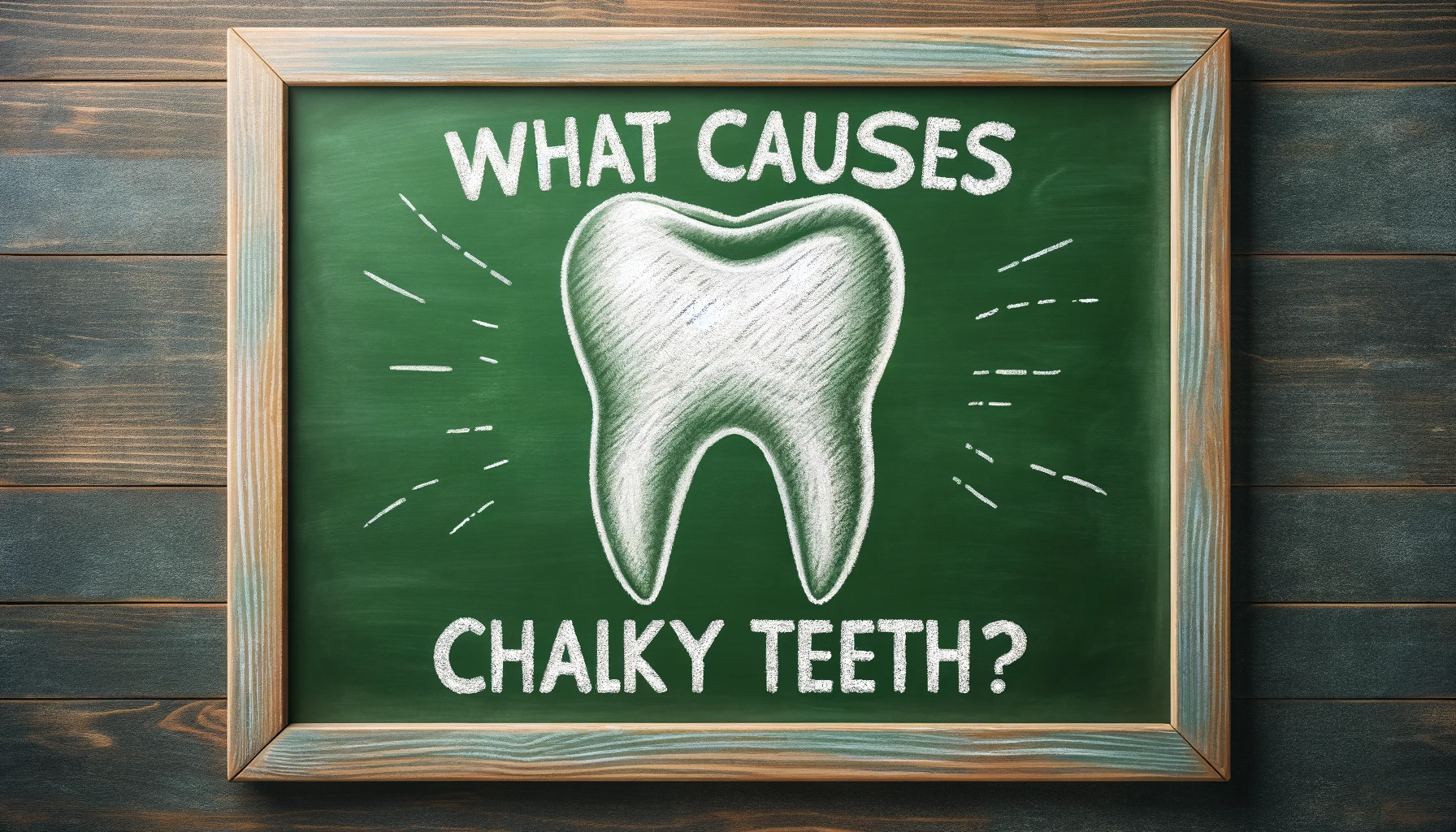Molar Incisor Hypomineralisation (MIH), also called chalky teeth, is a developmental issue that according to the D3 Group, affects one in five children. Early detection and management can be key to preventing further complications, such as tooth sensitivity, wear, or tooth decay. In this article, we’ll discuss some of the possibilities behind what causes chalky teeth, how it can be managed and treated, and what to do if you suspect your child has Molar Incisor Hypomineralisation.
What are chalky teeth?
Chalky teeth occur when minerals like calcium and phosphate are lacking in the tooth’s enamel. This makes the teeth look and feel white or “chalky” on the surface. In some severe cases, the teeth can appear discoloured, mottled or have brown spots. Teeth with Molar Incisor Hypomineralisation (MIH) can be weaker, and more prone to damage, decay, and sensitivity. This is why early detection and treatment are so important.
What Causes Chalky Teeth?
The actual cause of Molar Incisor Hypomineralisation has not yet been pinned down definitively. Studies continue to show It’s a complex issue, likely rooted in a combination of genetics and environmental factors. Here are a few of the potential causes that may be behind Molar Incisor Hypomineralisation.
1. Prenatal Health Problems
One possible contributing factor to the onset of chalky teeth may be prenatal health problems. Certain infections or specific medicines used during pregnancy may affect the development of a baby’s teeth.
2. Premature Birth
Another culprit could be complications around birth. Premature babies, particularly those born significantly early may be at increased risk of developing the condition. This is because their tooth development process may be interrupted or altered due to their early arrival.
3. Early Childhood Health
Childhood health problems and illnesses may also be a factor. Consistent high fevers or recurrent infections may affect enamel formation in young children during the first few years of life. During this time, the child’s teeth are growing and can be more prone to developmental problems.
4. Medications
Lastly, taking certain medications as a child may also contribute to Molar Incisor Hypomineralisation. Certain medicines can impact the developing teeth and proper mineralisation of a child’s teeth. As such, it’s always essential to administer medication under proper medical advice.
Symptoms and Early Detection
Chalky teeth (MIH) mainly affect the six-year old molars and the front central teeth. These are the first “adult” or “permanent” back and front teeth. It can also affect the 2-year and 12-year molars, although this is less common.
With that in mind, here are symptoms to keep an eye out for:
- White or yellow-brown discolouration
- Teeth sensitive to hot and cold or certain foods
- Cracked or crumbled tooth surface
- Small pits or grooves on tooth enamel
- Pain when eating, drinking or brushing teeth
Chalky teeth, just like any medical condition or symptom, will affect individuals differently, with different symptoms.
So if you notice any of the above signs or symptoms or are concerned about your child’s oral health, make an appointment with their dentist as soon as possible.
Treatment Options for Chalky Teeth
The main approach to treating chalky teeth (Molar Incisor Hypomineralisation) is good oral hygiene, preventative treatments such as fluoride and varnishes and early intervention if required. This is why children should have regular check-ups with their local dentist from an early age (1-2 years old).
Once Molar Incisor Hypomineralisation is diagnosed, a suitable treatment plan will be customised based on the severity of the condition. To treat chalky teeth, your dentist may recommend:
1. Mild Cases
For mild cases, a fluoride varnish or similar high-concentration fluoride treatments can help to strengthen the tooth’s surface. This treatment is often painless and can be done in a single dental visit, often at their 6 monthly check up and clean.
Dental sealants can also be used in mild cases of chalky teeth. The sealant acts as a protective barrier for the tooth enamel, protecting it against bacteria and acids that can cause decay.
2. Moderate to Severe Cases
In more severe instances, the dentist might suggest a partial or complete tooth covering (like a filling, or a preformed metal crown, also known as a ‘cap’) to protect the tooth from further damage or decay. More invasive treatments may be recommended if the tooth is painful or if the degree of tooth damage or decay is high.
In certain severe cases, tooth extraction might be required – particularly if the affected tooth is causing ongoing pain and problems. If a tooth is removed, then your dentist will discuss possible replacement options with you.
Prevention Strategies
Since chalky teeth are a developmental issue, there isn’t currently a way to prevent it from occurring through diet and oral hygiene best practices. So in this instance, the best prevention is early detection. If detected early enough, your dentist can manage the condition accordingly.
Once chalky teeth (MIH) has developed, children can be at risk of developing rapid tooth decay. So with that in mind, here are some steps you can take to help prevent decay:
- Brush twice a day with fluoride toothpaste
- Avoid foods and drinks that are highly acidic or high in sugar content
- Have regular dental checkups and cleanings
Beaches Dental Mona Vale Can Help
If you suspect your child may have chalky teeth (MIH), our experienced and friendly staff are here to help. We provide a warm, comforting environment to ease any anxiety your child may have towards dental visits. Please contact us on by requesting an appointment here or calling us (02) 9997 8822.

